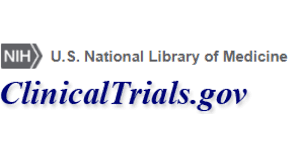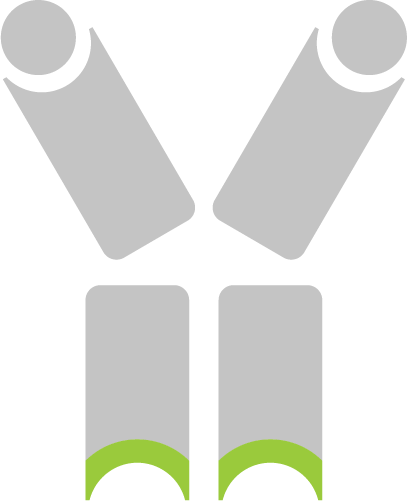Designed for Your Journey
Our Promise
We are developing treatments for inflammatory disease and cancer by combining precision patient selection with novel immunotherapies. We are steadfast in our mission to make these therapies effective, safe, and accessible, enabling self-administered treatment in the comfort of your home.
We are developing treatments for inflammatory disease and cancer by combining precision patient selection with novel immunotherapies. We are steadfast in our mission to make these therapies effective, safe and accessible, enabling self-administered treatment in the comfort of your own home.
This study will evaluate the safety of DK210 (EGFR) given in different doses to cancer patients facing progressive disease after standard treatment. Safety and efficacy will be also tested, combining the novel drug with radiation, chemotherapy, or PD-1 blockers. Patients have locally advanced or metastatic (spread to other organs) cancers which overexpress EGFR receptors and have progressed under at least one line of systemic (given by the blood) treatment (such as chemotherapy, immunotherapy, or targeted therapy). Click here to learn more.
This trial is designed for patients with advanced solid cancer who are overexpressing epidermal growth factor receptors (EGFR).
Click here to learn more.
DK210 (EGFR) is a novel, dual-cytokine therapy given in subcutaneous injections 3 times per week, that combines normal interleukin-2 with a high affinity interleukin-10, that is designed to accumulate in tumors by binding to the epidermal growth factor receptor (EGFR).
DK210 (EGFR)’s mechanism of action is the stimulation of immune cells (CD8+, CD4+ T and NK cell) to actively destroy tumor cells. By coupling (combining) of IL-2 with IL-10 and targeting the drug to the EGFR in the tumor microenvironment, the aim is to create a wider safety window allowing combination with other treatments like PD-1 blockers, chemotherapy or radiation.
Commonly Used Terms
Navigating medical terms, especially in the world of cancer, can feel overwhelming. Outlined below are several frequently used terms along with their definitions. It’s our hope that this glossary can guide you in finding the best treatment and lighten the load on your journey.
Cytokines are messengers that help control the growth and activity of immune system cells, as well as blood cells in our body.
(Reference: cancerresearch.org)
Treatment that uses cytokines (substances made by immune cells) to help the body fight cancer, infection, or other diseases. Cytokines play an important role in the body’s immune response. They can also be made in the laboratory to use as treatment for different diseases.
In cancer, cytokine therapy may help the immune system recognize and kill cancer cells or limit them from growing. The two main types of cytokines used to treat cancer are interleukins and interferons.
Immunotherapy is one of the most promising cancer treatments available today for locally advanced and metastatic (spread to other organs) cancers. Cancer immunotherapy is unique because it uses the power of the body’s own immune system to treat cancer. Immunotherapy can be used for many types of cancer, either alone or in combination with other treatments.
(Reference: cancerresearch.org)
Interleukins, commonly referred to as IL, are cytokines that help immune cells grow and divide more quickly.
(Reference: cancerresearch.org)
One of a group of related proteins made by leukocytes (white blood cells) and other cells in the body. IL-2 is made by a type of T lymphocyte. It increases the growth and activity of other T lymphocytes and B lymphocytes, and affects the development of the immune system. Aldesleukin (IL-2 made in the laboratory) is being used as a biological response modifier to boost the immune system in cancer therapy. IL-2 is a type of cytokine.
(Reference: cancer.gov)
One of a group of related proteins made by leukocytes (white blood cells) and other cells in the body. IL-10 is made by activated macrophages and by some T lymphocytes. It reduces inflammation by blocking production of cytokines by immune cells. IL-10 also increases antibody production by plasma cells and helps them live longer. IL-10 made in the laboratory is used as a biological response modifier to boost the immune system. It is a type of cytokine.
(Reference: cancer.gov)
A form of medicine that uses information about a person’s own genes or proteins to prevent, diagnose, or treat disease. In cancer, precision medicine uses specific information about a person’s own and tumor cells to help make a diagnosis, plan treatment, find out how well treatment is working, or make a prognosis. Examples of precision medicine include using targeted therapies to treat specific types of cancer cells, such as HER2-positive breast cancer cells, or using tumor marker testing to help diagnose cancer. Also called personalized medicine.
(Reference: cancer.gov)
A type of white blood cell. T cells are part of the immune system and develop from stem cells in the bone marrow. They help protect the body from infection and may help fight cancer. Also called T lymphocyte and thymocyte.
(Reference: cancer.gov)
More Resources
For more information we recommend exploring these credible sites, which may help you gain a better understanding of cancer and provide you with valuable insights and resources.


























